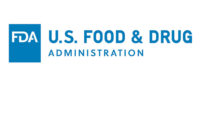Perhaps the most enjoyable part of my job is when I'm offered a new perspective distinctly different from my own, or when someone helps clarify vague, underdeveloped concepts "knocking about" in my head.
Such was the case with a presentation given by J. Andre Teixeira, principal with the consulting firm eemPOK, Experiential Innovation. Teixeira repeated Henry Ford's famous quote to exemplify the point that, while consumers are at the center of almost everything, consumer-driven product development is often a failure. "Consumers know what they want, but have no idea what they will want," Teixeira points out.
His speech covered concepts relevant to the changing world of product development, particularly with ingredients and consumer products positioned for health. He noted a number of differences between B2C (business-to-consumer) marketing vs. B2B (business-to-business). For example, B2C marketing requires products to be aligned with a brand, in that solutions are sold through the promise of a brand. Such brands must be relevant to consumers, as they establish an emotional identity and credibility. In contrast, B2B communications focus on an ingredient's benefits, and marketing is fact-based. Research is used as a selling point, and technology generally drives market research.
Teixeira, who has held positions such as vice-president of International R&D at Campbell Soup Company and president of Coca-Cola Russia, listed a number of R&D trends. For example, companies are moving from internal R&D to networked innovation ("open innovation" is a misnomer, he says); from teams of specialists to trans-disciplinary individuals; and from lifelong employment to serial careers. He also suggested departments are moving from lab science to embedded innovation, where business-savvy technologists and scientists enable a culture of innovation to become pervasive throughout the company.
What of Henry Ford's comment? Teixeira believes technology can, or maybe even should, drive new business. This caught my attention, in that it is commonly said that product development should be driven by consumer needs, not science. But, my food science side was hoping technology has a greater role. "Technology drives new consumer products, when it offers a solution," clarified Teixeira. "However, the challenge becomes how to sell those solutions."
Perhaps this is where science--or rather business-savvy food technologists--do play a greater role, as contributors in companies where innovation is an enterprise-wide endeavor. pf







